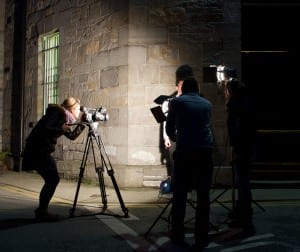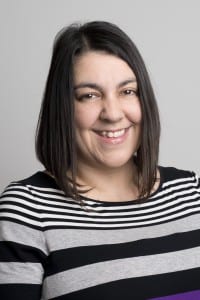Read all about it: life as a magazine features editor
By uczjsdd, on 1 February 2017
 Will has a Philosophy BA, a Philosophy MA (from UCL – whoop whoop!), and a PhD in Computer Science. Will is now a Features Editor at New Scientist Magazine, and he kindly chatted to us about his job and career path.
Will has a Philosophy BA, a Philosophy MA (from UCL – whoop whoop!), and a PhD in Computer Science. Will is now a Features Editor at New Scientist Magazine, and he kindly chatted to us about his job and career path.
How did you transition from your PhD to your current role?
After my PhD I worked as a post-doc for 3 years. I enjoyed research, but it became increasingly clear that I was less drawn to the things that I would need to do to progress – i.e. find my own niche area of research and be able to ‘sell’ it.
In the back of my mind I also always thought I wanted to be a writer or a journalist rather than a computing researcher, so I started freelancing with games and technology writing, and while I was post-docing I went to an event about science communication. I had fun, and I learned about the university’s Science Communication Masters program. I applied to the course partly because it looked great, but also partly to bide time while I continued to get more freelancing experience. It worked out well; the course was fantastic, and at the end of it I got a 6-month traineeship at New Scientist in the news section. After that I worked there on a rolling contract as a news reporter for a year, and then applied for the features editor job, which I’ve had for two years.
What does your job involve?
A huge part of the job is generating ideas that might make a cool feature for the magazine. Coming from a research background, it can take time to get your head around what makes a good story. We’re trying to sell this magazine, so a good feature has to not only be informative, but entertaining enough to compete with other magazines, and also anything else that might take your attention, boxsets and games etc.
I specifically work on technology features, so I’m always keeping up to date with that field, to see which new developments and ideas might fit together to make a great story. When I think I’ve got something, I’ll put together an outline of the narrative of the feature, along with key people it would be worth speaking to, and that will be the basis of a commission. I’ll then find a writer for the story – editors usually have connections with regular writers – and there will probably be several rounds of edits back and forth once they’ve written it. We’ll also work with picture editors to choose the artwork that accompanies the story in the magazine, and increasingly we’ll work with people on putting together a package to accompany the story online, which might be videos or even an animation or interactive app for the reader. I sometimes do some writing myself, but that’s a small part of my role.
The role is different to the one I had in the news team. I was writing a lot more in news, and my features role is more similar to doing a PhD in a way; You get to interact with lots of different people, but ultimately you’re working on your own project and you’re left to get on with it until it’s due. The news desk is faster paced, as you’re part of a team contributing each week to the news section.
Is a PhD essential for your current role and what are the skills gained from your PhD that you use now?
A PhD isn’t essential but it’s useful. It probably gave me an edge when applying for the traineeship at New Scientist. Having a PhD in tech stuff is extra helpful because finding people who are techy and are not just good writers, but are able to write well about technology in its broader social context, i.e. technology’s relationship with us, how it changes us (which is what makes technology interesting to most readers), can be especially difficult.
The PhD can help in other ways too. The experience of doing independent research and of being confident enough to pursue an idea on your own is great for work as a features editor. And having an insight into what research actually is helps in science journalism.
What are the best things about your role?
The ability to have an idea pop into your head and then be paid to spend time pursuing it is brilliant. Then there’s the satisfaction of seeing your initial idea grow to something that can finally come together on the printed page. And there’s a nerdy satisfaction in the final tweaks that need to be made to make the feature work, making the language as punchy as possible and playing with the article layout, which I personally really like.
What are the worst parts?
There’s a lot of pressure. As a writer on the news desk there was an intense pressure day-to-day to get your story done. But as a features editor there’s a different kind of pressure. There isn’t such an immediate deadline, so you have to be a bit more organised with your time to make sure everything gets done, which might not suit everyone. And the features are the powerhouse of the magazine, they’re what make most people subscribe to New Scientist or pick up the magazine and buy it in a shop. So there’s a pressure to come up with something that will be good enough to really grab people. And there can be a lot of dead ends when you’re coming up with ideas – you always want your ideas to work out, but a lot of times they don’t. You also don’t really do much writing as an editor, which may be disappointing for some people.
What’s the progression like from here?
New Scientist is relatively small and people love their jobs so may stay for a long time, so there isn’t a huge amount of movement in the staff. There are places to move up from here, one could move to being a section head, managing a whole section like features or news or digital content, but of course that’s dependent on people leaving. Some people move on to being freelance, like many of the writers I’ll commission for features.
What are your top tips for researchers wanting to move into your field?
Try it. Write. I wish I’d done more of this when I was a researcher – just get writing, for a blog or for your university magazine, and pitch some ideas to editors to see if you can get something commissioned. To get writing jobs you’ll need a portfolio of writing to show people. Plus it’ll tell you whether you like it. And I’d advise you to keep doing it, because you might like writing the odd thing, but if you end up as a journalist you’ll have to write and write and write, so it’s worth seeing whether you’d like that. It’ll also get you used to having your pitches rejected. As a journalist you’ll get lots of rejections, and in time you get better at picking and pitching ideas so that they’re less likely to (but of course still sometimes do) get rejected.
Doing a science communication or journalism course isn’t essential, but it can help. The courses have a good reputation in the field. They can help you hone your craft, but also open your eyes to other types of communication/journalism that you may not have thought about.
 Close
Close



